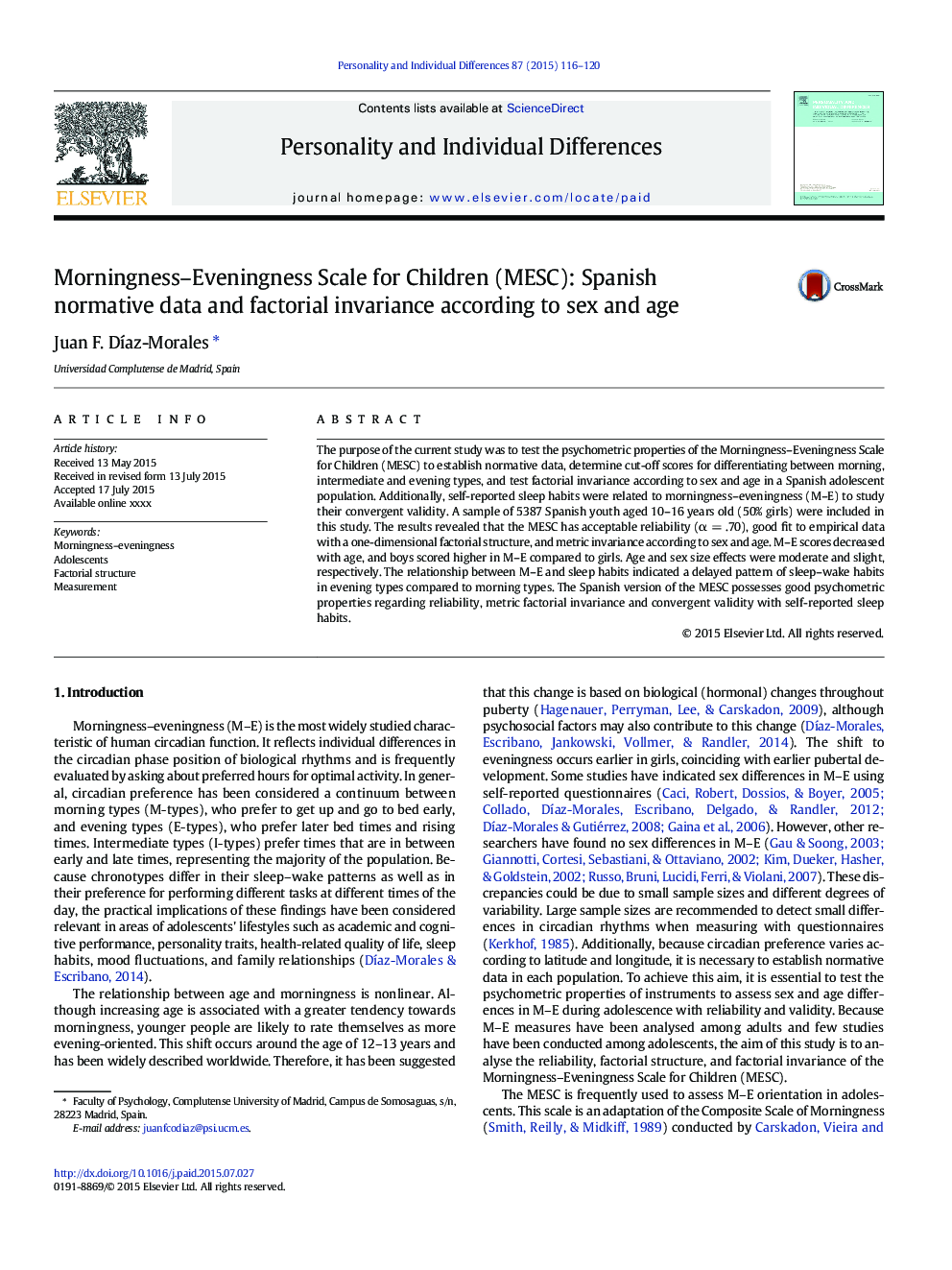| Article ID | Journal | Published Year | Pages | File Type |
|---|---|---|---|---|
| 7250942 | Personality and Individual Differences | 2015 | 5 Pages |
Abstract
The purpose of the current study was to test the psychometric properties of the Morningness-Eveningness Scale for Children (MESC) to establish normative data, determine cut-off scores for differentiating between morning, intermediate and evening types, and test factorial invariance according to sex and age in a Spanish adolescent population. Additionally, self-reported sleep habits were related to morningness-eveningness (M-E) to study their convergent validity. A sample of 5387 Spanish youth aged 10-16 years old (50% girls) were included in this study. The results revealed that the MESC has acceptable reliability (α = .70), good fit to empirical data with a one-dimensional factorial structure, and metric invariance according to sex and age. M-E scores decreased with age, and boys scored higher in M-E compared to girls. Age and sex size effects were moderate and slight, respectively. The relationship between M-E and sleep habits indicated a delayed pattern of sleep-wake habits in evening types compared to morning types. The Spanish version of the MESC possesses good psychometric properties regarding reliability, metric factorial invariance and convergent validity with self-reported sleep habits.
Related Topics
Life Sciences
Neuroscience
Behavioral Neuroscience
Authors
Juan F. DÃaz-Morales,
